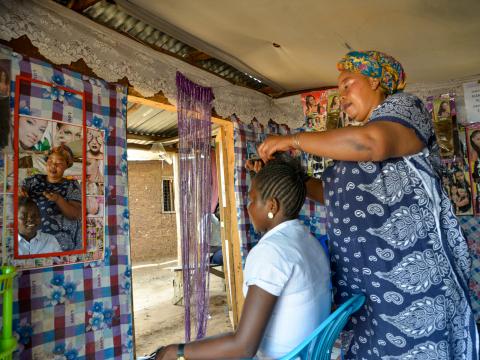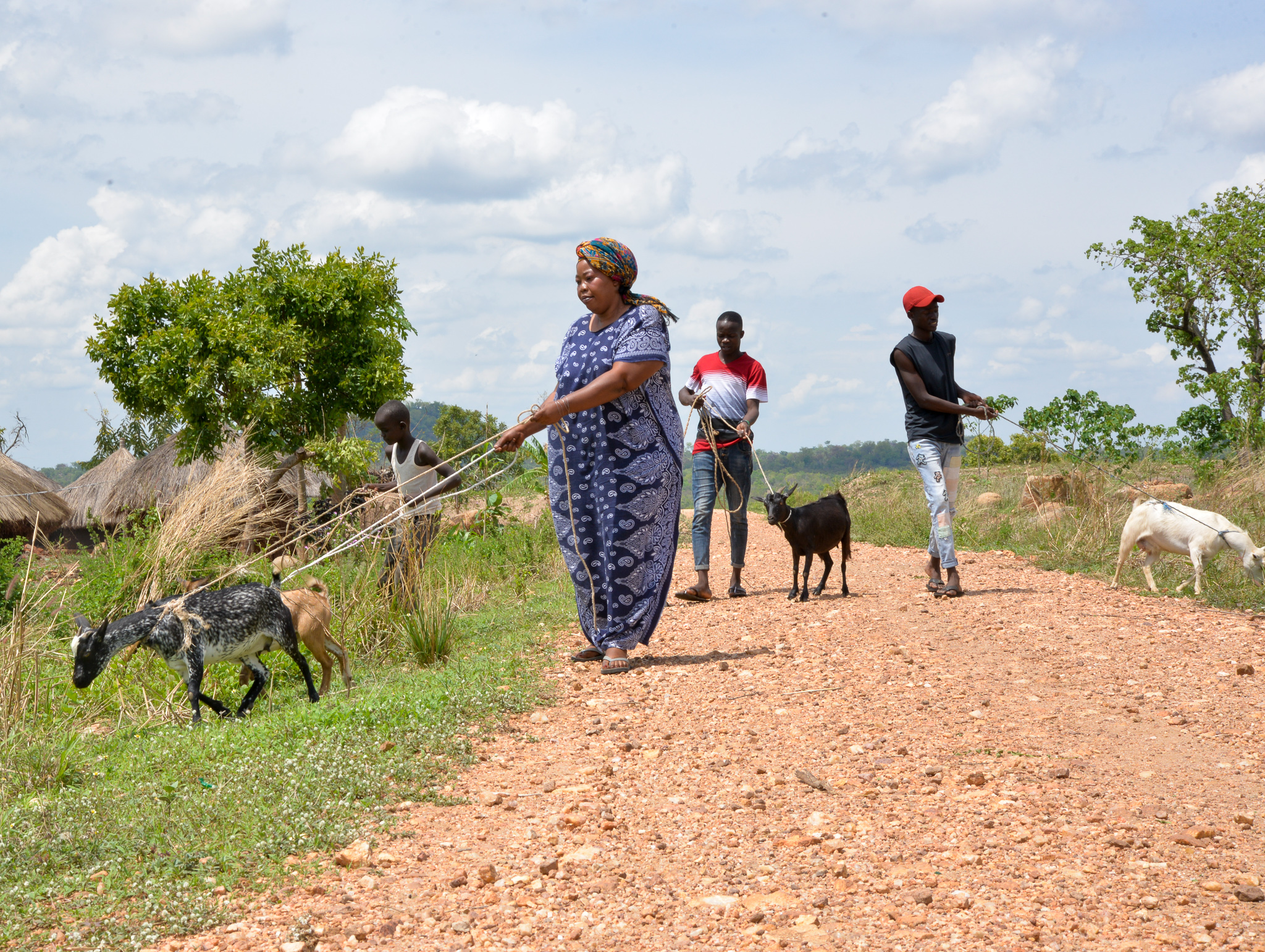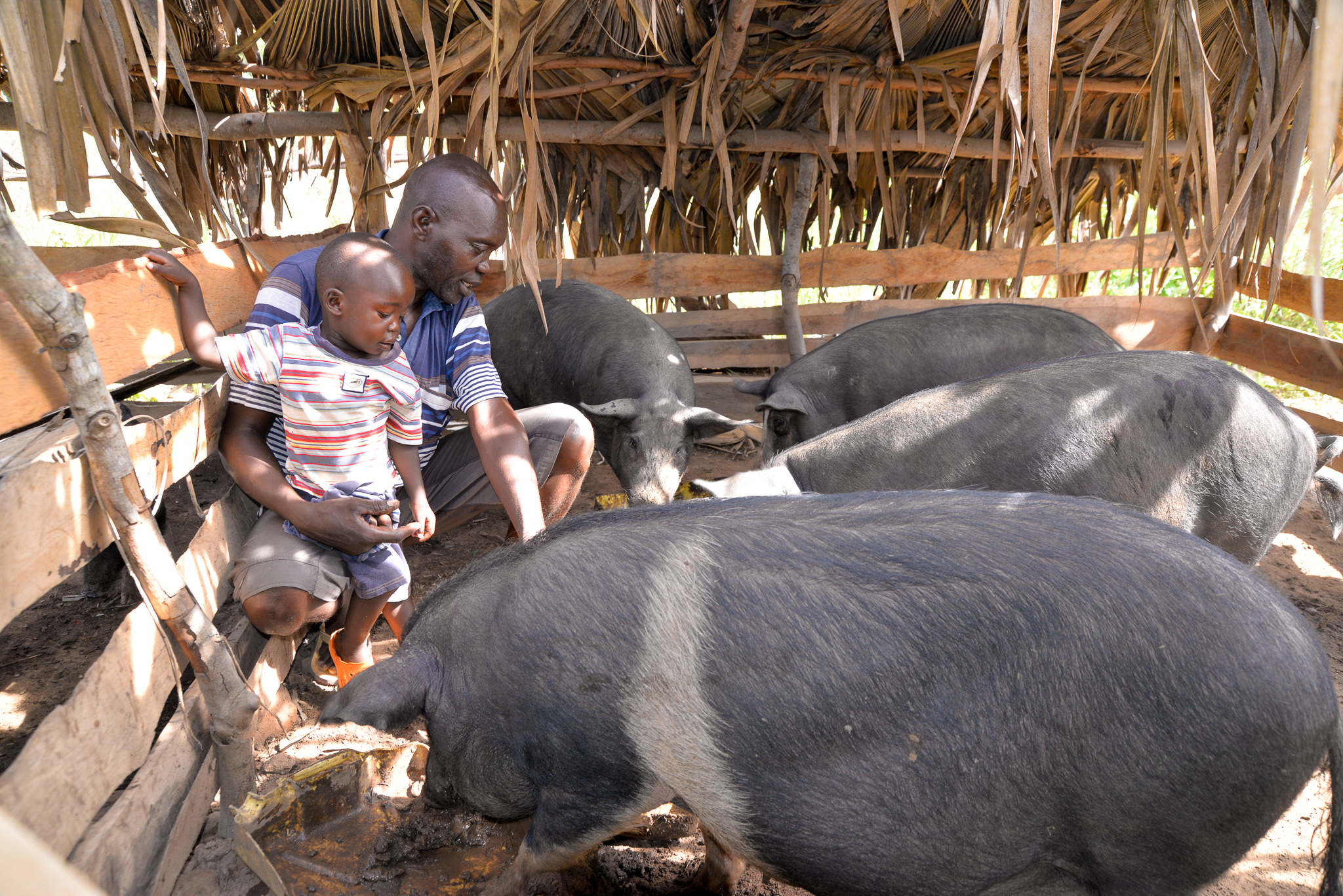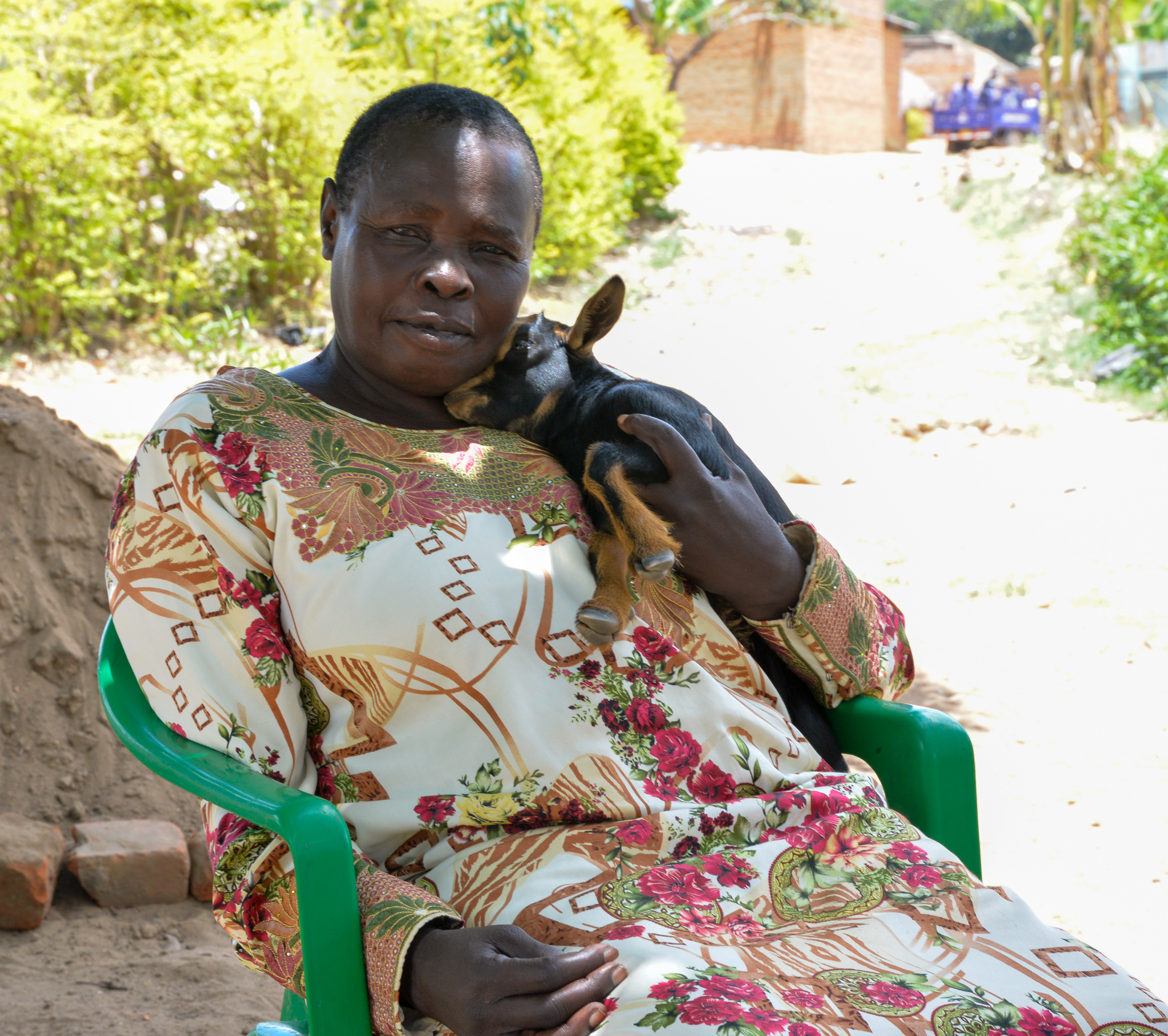Breaking the dependency mindset through Empowered Worldview

By Derrick Kyatuka - Communications Officer, Uganda Refugee Response
“Most refugees want to be given [things] all the time. A few of them think about rising above their current situation and making their lives better”, says Josephine Sadiya, a South Sudanese refugee living in Omugo settlement.
A high number of refugees continue to depend on aid agencies for survival, with only a handful engaging in income generating activities.
“Tables have turned with COVID-19 and the reduction of food rations. Refugees are headed for tough times if they don’t find alternative sources of survival. NGOs (non-governmental organisations) that are providing relief aid are also strained financially”, she adds.
It is undeniable that paternalistic tendencies and the dependency mindset continue to stifle refugees’ capacity to build their resilience. Refugees see aid organisations entirely as their source of livelihood.
The disease of a dependency mindset has left a high number of refugees mentally disengaged and complaining about lack of basic needs. The rest simmer in discontent.
However, some refugees and host community members are silver linings in the dark cloud. A few that have embraced Empowered Worldview trainings organised by World Vision, like Harriet, Ariyo and Gladys, have sprouted and stamped their names as committed entrepreneurs in their communities.
The course of their lives has changed. They entirely support their children using knowledge from the training.
Harriet reaps through salon business and herding goats
Harriet is one of the refugees on the journey to prosperity. As a community leader, she was chosen to be among the pioneers of the training in Omugo settlement in 2019.
“As a community leader, I represent my fellow refugees in the different NGO forums at the community level”, she says. “Through my interaction with communities, I have noticed that most refugees survive under very difficult circumstances. Children are the most affected. They eat one meal a day and malnutrition cases are increasing. There is hard-biting poverty among the refugees.”
Harriet is using the opportunities around her to prioritise long-term goals and she has joined saving groups with an aim of boosting her household income.
“Through the Empowered Worldview training, I was able to free up my mind,” she says. “Prior to the training, it was hard for me to forgive and let go. I held grudges with people and had a lot of hatred in my heart. This kept me on the dark side of success. A free mind helped me to have a plan and a vision for the future”, says the mother of three.
Before the training, Harriet owned three goats. After the training, she used the money she had saved to buy four more goats. They have since multiplied to 13 goats. She also started making liquid soap that she would sell within the settlement to raise school fees for her children.

“I hired an acre piece of land in the host community where I plant vegetables, cassava, groundnuts and sweet potatoes”, she says. “I have also opened up a hair salon with hope of working with implementing partners in the settlement to train vulnerable children in vocational skills but it is also earning me money. I plan to buy a piece of land in the host community in the next two years.” All these investments will bring in profit for Harriet in the long run.
Ariyo finds a niche in piggery
Just like Harriet, Ariyo Drajoa Constantine is thriving in the lucrative pig farming venture after attending the training. Using the knowledge from the training, Ariyo committed to rearing two piglets he already had to turn around his household’s fortunes.
“During the training, I realised that I didn’t have to start with much but to use what I already had. The two piglets were my starting point”, he says. “I took good care of them and when they matured, I sold the boar at 450,000 shillings (about US$127) and used part of the money to buy three more piglets, and the rest of the money helped to meet my household needs.”
Ariyo is a professional teacher, and the additional modern farming training along with proper planning have turned his life around.
“I would save money with hope of starting a business but with no specific business in mind. Then suddenly, I would withdraw the money to use it for other things. I had no financial discipline”, he says.

He is now focused to put to good use the land where he lives. He has dug a fish pond to tap into the virgin market for fresh fish in his community.
“My children will never lack”, he says. “I am using the knowledge from the training to make their lives better. I involve them, too, for them to learn at an early stage and to avoid the dependency pattern in future because life is very unpredictable.”
Gladys envisions a comfortable retirement
Gladys Edonia, a civil servant set to retire next year, says the training came at a good time and as a blessing in her life. She says the training completely changed her mind and helped her to prepare for her retirement.
“I attended the training when I had only one female goat. It gave birth twice to triplets and I committedly raised them. My goats multiplied and now I have 28 goats”, she says.
“I also set up a fish pond to supplement the diet of my grandchildren but also raise income to meet most of their needs”, says Gladys. “I have also started a fresh juice business and a retail shop as my retirement income generating activities.”

According to Jennifer Etap, the child protection facilitator overseeing the Empowered Worldview training, the approach, through trainings and capacity building, aims to unleash people’s creative potential to look for new ways to solve problems with the resources they have at hand.
“We empower families to find creative ways to solve problems within their communities and by doing so, World Vision’s work will be multiplied. We have so far trained 93 people both from the host and refugee communities,” she says.
“Most of the people thought that they needed to have money to turn around their lives, but through the trainings, they were awakened to start with resources around them”, adds Jennifer. “Mindset change is all they lacked. We have registered many success stories from our beneficiaries and most of them are able to meet the needs of their children and support their families.”
Embracing mindset change trainings like Empowered Worldview is one of the simplest ways refugees and host community members can rise above their current circumstances, break the dependency syndrome and build their resilience. Harriet, Ariyo, and Gladys are living proof.